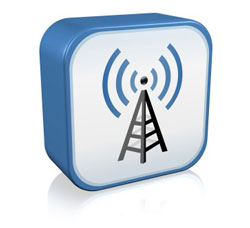
 The Federal Communications Commission approved this week (9/23) the use of unlicensed airwaves, known as “white space” for high-speed wireless broadband networks and other applications. The airwave spectrum in question was opened up as a result of the switch from analog to digital TV signals. According to an article in the New York Times, the decision marks the “first significant block of spectrum made available for unlicensed use by the F.C.C. in 20 years.”
The Federal Communications Commission approved this week (9/23) the use of unlicensed airwaves, known as “white space” for high-speed wireless broadband networks and other applications. The airwave spectrum in question was opened up as a result of the switch from analog to digital TV signals. According to an article in the New York Times, the decision marks the “first significant block of spectrum made available for unlicensed use by the F.C.C. in 20 years.”
Chief among concerns regarding the new spectrum is that the added “traffic” might cause interference for existing broadcasters. The FCC has released a memorandum (get it here) that outlines its plans to deal with these issues.
Of note for entertainment companies is the fact that the newly-available bandwidth will create “super Wi-Fi” signals that are stronger, travel further distances and are able to penetrate objects more completely than existing Wi-Fi. Ultimately, these signals could bring a new era of online availability for mobile and rural applications. As distribution of audio (radio) and video (TV) signals continues to migrate away from terrestrial sources in favor of Internet, this new bandwidth will speed the transition.

About the Author
David M. Ross has been covering Nashville's music industry for over 25 years. dross@musicrow.comView Author Profile


